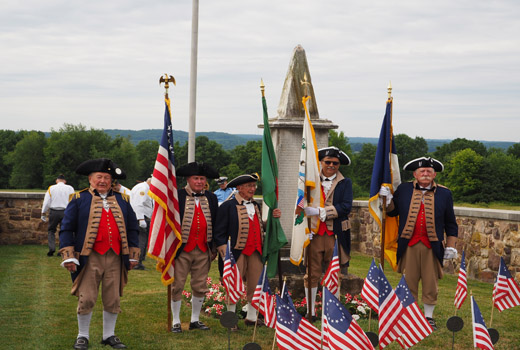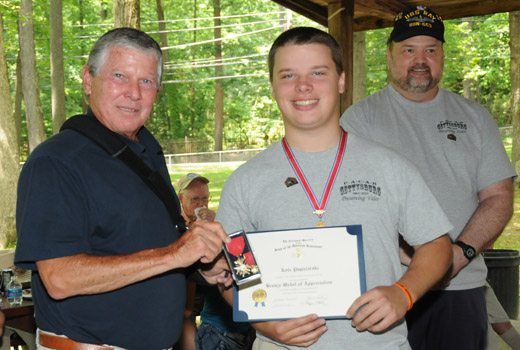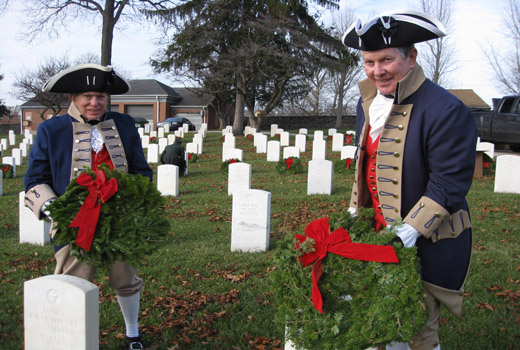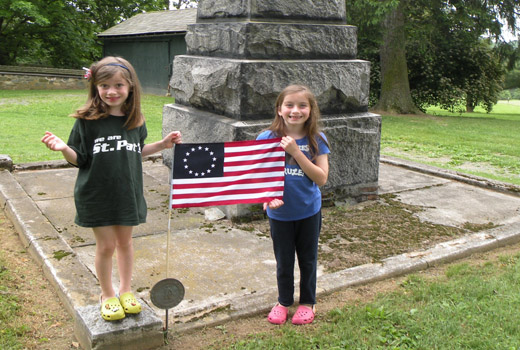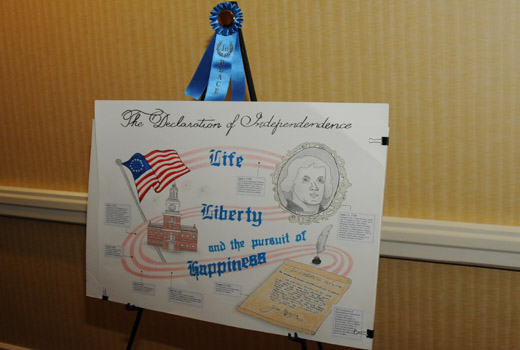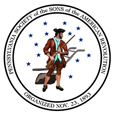Membership Information
Membership
Acceptable Service by a Patriot Ancestor
Collect and Organize Your Documentation
Eligibility
Any man shall be eligible for membership who meets the following requirements:
- Is eighteen years of age or older for a regular membership;
- Is a citizen of good repute in the community;
- Is the lineal descendant of an ancestor who was at all times unfailing in loyalty to the cause of American independence, and rendered acceptable service by overt acts of resistance to the authority of Great Britain;
- Is personally acceptable to the Society.
- Family tradition in regard to the service of an ancestor or the line of descent is not acceptable as documentation.
- SAR members may provide informal assistance to the applicant, but the NSSAR will not give a preliminary decision on a line of descent, service, or the evidentiary value or proposed evidence.
Acceptable Service by a Patriot Ancestor
A patriot ancestor must have contributed service in at least one of the following activities:
- Signer of the Declaration of Independence
- Military or naval service from April 19, 1775 to November 26, 1783
- Battle of Point Pleasant, October 10, 1774
- Ft. William and Mary, December 14/15, 1774
- Civil service under the Colonies from April 19, 1775 to November 26, 1783, inclusive
- Patriotic service by men or women during the Revolutionary period, including:
- Members of committees made
necessary by the war, such as:
- Committee of Correspondence, Inspection and Safety
- Committee to care for soldiers’ families
- Including Committees from 6 months before the Battle of Point Pleasant which furthered the cause of the Colonies
- Members of all Continental Congress
- Furnishing a substitute for military service
- Signers of::
- Mecklenburg Declaration, 1775
- Albemarle, Virginia Declaration
- Similar Declarations
- Signers of petitions addressed to and recognizing the authority of the provisional and new state governments
- Persons accepting obligations or acting under direction of the provisional and new state governments such as persons directed to hold elections, to oversee road construction, to collect provisions, etc.
- Members of the
- Boston Tea Party
- Kaskaskia Campaign
- Galvez Expedition
- Cherokee Expedition
- Edenton Tea Party
- Physician, surgeon, nurse, or others rendering aid to the wounded
- Ministers known to be in sympathy with the Colonies, either by sermon, speech, or action
- Defenders of forts and frontiers, and rangers
- Prisoners or war, including those on the British ship "Old Jersey", and other prison ships
- Rendering material aid, such as:
- Furnishing supplies with or without remuneration
- Lending money to the Colonies
- Munitions makers and gunsmiths
- Anything else which furthered the cause
- Any pledge to support the cause
of the Colonies, such as signing the Oath of
Fidelity and Support, the Oath of Allegiance,
Articles of Association, or the Association Test
Collect and Organize Your Documentation
You will need proper documentation to prove your lineage. This documentation includes certified birth, marriage and death certificates, wills, federal census and other records. Printed genealogies may be accepted as proof only if the genealogy is adequately documented. However, it is best to rely on primary documents, i.e. a birth certificate clearly showing parents’ names or a will in which the writer clearly identifies a child through whom the applicant’s lineage is traced. You will also need adequate documentation which proves that your ancestor provided eligible service.
Most applicants join a local chapter so they can attend the chapter meetings and other functions of that chapter. You may join any chapter in the state or become a "member at large", with no affiliation to any local chapter. Contact the State Registrar or the Registrar of the local chapter you wish to join for assistance. They will be able to assist you in making your application.
For additional information, see The Membership Process at the National Society web site.
Dues & Fees - Click here for the full Table
